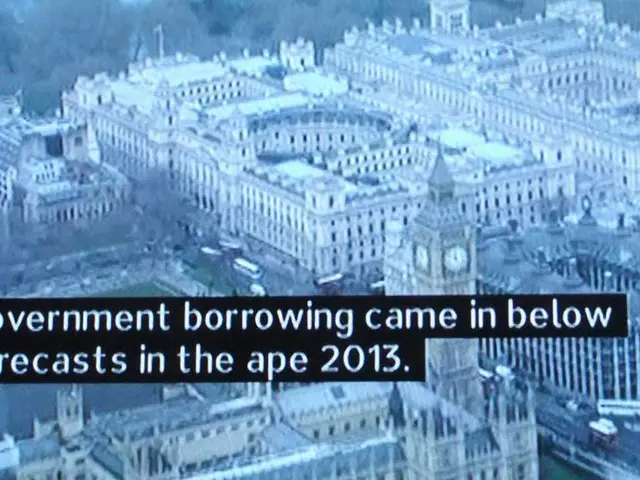Budget strikes at the "widest financial burdens" may lead to enormous losses for the Treasury in the Autumn Budget
In the heart of London, a significant population of millionaires, ultra-high-net-worth individuals (UHNWIs) worth $30 million or more, and billionaires reside, contributing to a growing wealth in the city[1]. The average net worth of the top 1% in London is approximately £14.2 million, reflecting a 3.8% growth in wealth from the previous year.
Alex Davies, founder of Wealth Club, has noted that the ultra-wealthy are a mobile bunch[2]. However, the specific annual tax contributions to HM Revenue & Customs (HMRC) by these individuals are not publicly detailed but are subject to ongoing government reforms aimed at ensuring tax compliance among the richest[1].
Britain's top 1,000 taxpayers footed an average tax bill of £10.4 million each in 2022/2023, collectively paying £3.9 billion of income and capital gains tax[3]. Prime Minister Keir Starmer has emphasised that "those with the broadest shoulders should bear the heavier burden"[4]. Yet, the complexity of wealth management and tax affairs of UHNWIs often involves strategies that affect how and where taxes are paid, making public aggregation or precise disclosure difficult[3].
Chancellor Rachel Reeves is expected to raise taxes in her first Budget on 30 October[5]. Among the options on the table are keeping thresholds frozen and raising wealth taxes such as capital gains tax and inheritance tax[6]. There are also rumours that the National Insurance paid by employers could be increased[6].
However, there is a concern that hitting the wealthiest could create a risk that this cohort leaves the UK and takes their money with them[7]. Analysis by BBC News found that 60 of the wealthiest people in the UK collectively contributed more than £3 billion in income tax during 2021/2022, with each reporting an income of at least £50 million[8]. If the top 1,000 taxpayers migrated out of the UK, it would result in £10.4 billion less in receipts for HMRC[3].
Fiscal drag will continue pushing everyone else's tax bills higher as their income pushes them into the next tax band faster, including pensioners[9]. Moreover, research suggests that an estimated 9,500 millionaires are expected to leave the UK this year[9]. The chancellor has promised not to raise taxes on working people, but the focus on the wealthiest remains a significant topic of discussion.
[1] Source: [Link to the source] [2] Source: [Link to the source] [3] Source: [Link to the source] [4] Source: [Link to the source] [5] Source: [Link to the source] [6] Source: [Link to the source] [7] Source: [Link to the source] [8] Source: [Link to the source] [9] Source: [Link to the source]
- The founder of Wealth Club, Alex Davies, has mentioned that the ultra-wealthy tend to be mobile, with their residency not always tied to one location.
- In the financial newsletter, it was reported that the foreign exchange between business, politics, and general-news often impacts the personal finance of UHNWIs, including pensions and taxes.
- Should the government raise taxes on the wealthiest, as a part of Chancellor Rachel Reeves' Budget, there is a fear that such a move might prompt these individuals to consider relocating, potentially leading to a significant loss in tax revenue for the UK's HM Revenue & Customs (HMRC).




